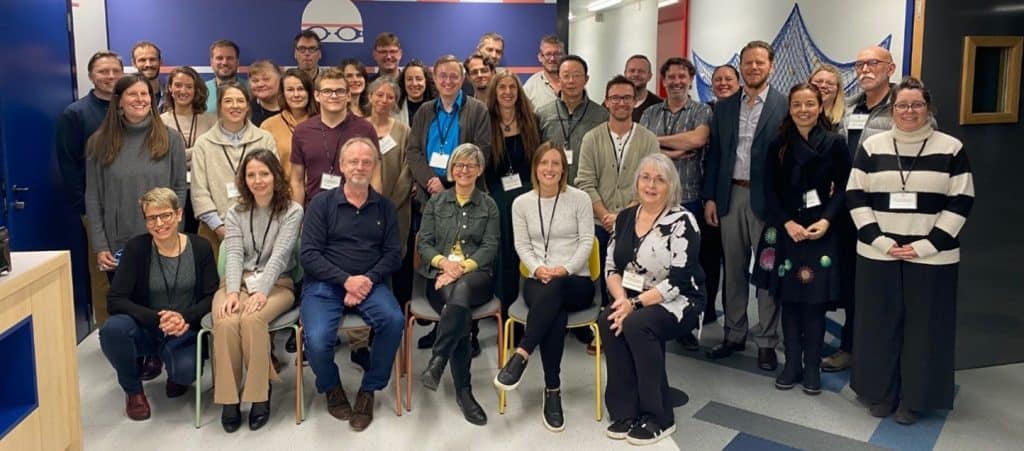HESI Next Generation Ecological Risk Assessment Committee Workshop on Alternatives to In Vivo Chronic Fish Testing
- Start Date/Time :
- End Date/Time :
- Location : Paris, France
 A HESI workshop on “Alternatives to Chronic Fish Toxicity Testing” was held in Paris, France on October 25-26 2023, attended by 35 multi-sector scientists from 12 different countries. The workshop was aimed at developing a strategy to guide alternative approaches for the assessment of chronic toxicity to fish, with a focus on how new science and approaches can be effectively used to improve our ability to protect the environment from the potential chronic impacts of chemicals.
A HESI workshop on “Alternatives to Chronic Fish Toxicity Testing” was held in Paris, France on October 25-26 2023, attended by 35 multi-sector scientists from 12 different countries. The workshop was aimed at developing a strategy to guide alternative approaches for the assessment of chronic toxicity to fish, with a focus on how new science and approaches can be effectively used to improve our ability to protect the environment from the potential chronic impacts of chemicals.
As follow-up from this workshop, specific topics/projects will be considered by expert work groups. The list below highlights some of the key messages representing new lines of thought regarding alternatives to chronic fish ecotoxicity testing:
- Overall, there was a general shift away from the concept of one-for-one replacement and towards an integrated approach for chronic fish testing linking various approaches and lines of evidence.
- NAM tools for investigating chronic fish toxicity need to be mapped, evaluated, and linked to a broader, integrated/intelligent strategy.
- A coordinated network of individuals working within the ecoNAM space needs to be established with an initial goal to map out ongoing method developments and data collection efforts.
- There is value in developing a menu of approaches to prioritize traditional chronic fish in vivo testing such that it is only conducted when truly needed to fill data gaps.
- Efforts should be undertaken to explore the role of NAMs to help reduce uncertainty in assessments (e.g., cross-species extrapolation, application factors, levels of concern, etc.).
- Further work should be initiated on how NAMs can help define groupings and/or analogue substances where insufficient information is available to characterize chronic fish toxicity (e.g., chemistries, mechanisms/modes of action, endpoints, etc.).
- Population modeling aims and needs should be incorporated within laboratory testing communities to inform data generation and direction on future approaches.
- Existing and NAM-based approaches across endpoints and applications relevant to chronic fish toxicity should be integrated. Links should be created to improve tools and assessments (e.g., bioaccumulation / ADME; specific endpoints relevant for chronic toxicity (including endocrine); in silico, in vitro, in vivo, population modeling, data from other taxa; acute and chronic, etc.).
For more information about this workshop or the HESI Next Generation in Ecological Risk Assessment Committee, please contact:
- Michelle Embry (membry@hesiglobal.org)
- Connie Mitchell (cmitchell@hesiglobal.org)
- Julie Krzykwa (jkrzykwa@hesiglobal.org)